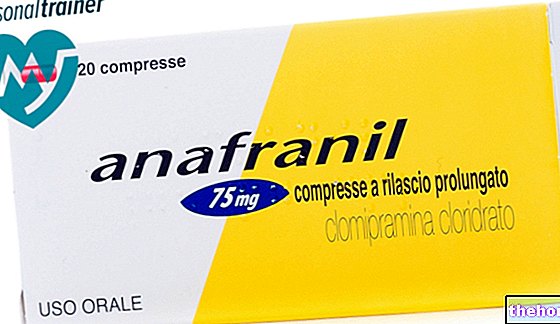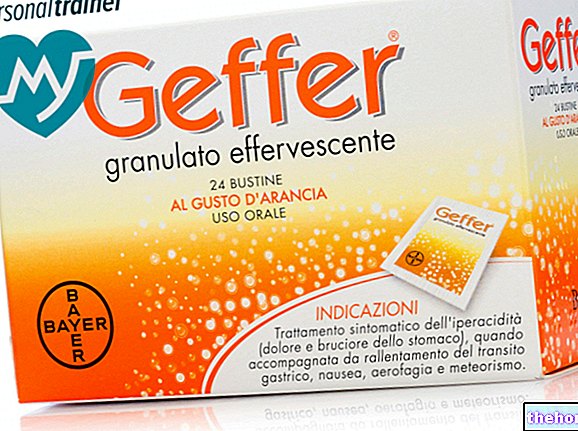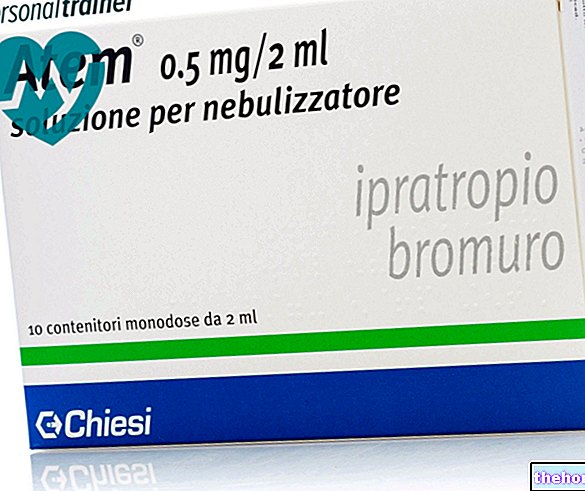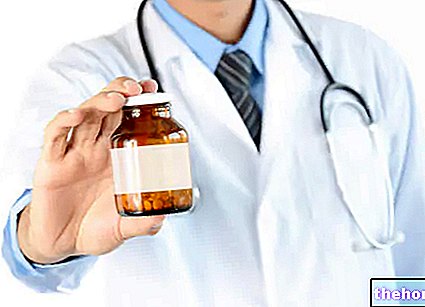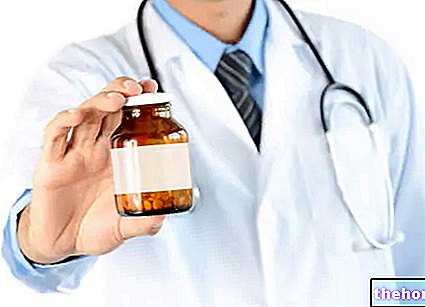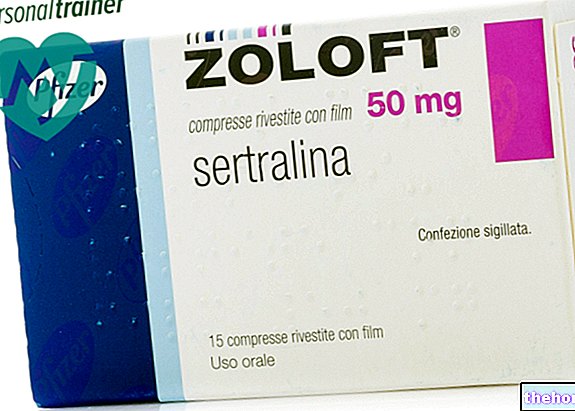Active ingredients: Serenoa (Serenoa repens), Nettle Urtica dioica
Prostaplant 160 mg + 120 mg soft capsules
Indications Why is Prostaplant used? What is it for?
Prostaplant is a herbal medicine for prostate diseases.
Prostaplant is used for the treatment of urinary disorders (increased frequency of urine emission at night, difficult emission, frequent stimulation with the emission of small quantities of urine) in case of benign enlargement of the prostate.
Contraindications When Prostaplant should not be used
Do not take Prostaplant
- if you are allergic to extracts of Serenoa repens fruit or Urtica dioica roots or any of the other ingredients of this medicine (listed in section 6).
- if you are allergic to peanuts or soy
Precautions for use What you need to know before taking Prostaplant
No special precautions need to be observed if Prostaplant is taken according to the instructions provided in this package leaflet. Prostaplant can only alleviate the ailments caused by an enlarged prostate but it does not remove the cause. It is recommended that you consult your doctor for regular check-ups especially if there is blood in the urine or acute urinary retention, fever, difficulty urinating and spasm.
Interactions Which drugs or foods can modify the effect of Prostaplant
Prostaplant has no relevant interactions with other medicines.
Tell your doctor or pharmacist if you are taking or have recently taken any other medicines, including those obtained without a prescription.
Warnings It is important to know that:
Children and adolescents
There are no relevant indications for the use of Prostaplant in children and adolescents under the age of 18.
Pregnancy, breastfeeding and fertility
There are no relevant indications for the use of Prostaplant in women.
Driving and using machines
There are no known adverse effects on the ability to drive and use machines.
Prostaplant contains soybean oil
If you are allergic to peanuts or soya, you should not take this medicine.
If you forget to take Prostaplant
Do not take a double dose to make up for a forgotten capsule.
If you stop taking Prostaplant
If you have any further questions on the use of this medicine, ask your doctor or pharmacist.
Dose, Method and Time of Administration How to use Prostaplant: Posology
Always take this medicine exactly as your doctor or pharmacist has told you. If in doubt, consult your doctor or pharmacist.
The recommended dose is 1 capsule 2 times a day. Take orally without chewing with a little liquid.
Overdose What to do if you have taken too much Prostaplant
Prostaplant is a well tolerated drug. No cases of overdose have been reported so far.
Side Effects What are the side effects of Prostaplant
Like all medicines, this medicine can cause side effects, although not everybody gets them.
Diseases of the stomach and intestines
Rare: mild gastrointestinal disturbances (nausea, vomiting, diarrhea), particularly when the medicine is taken on an empty stomach.
Skin and subcutaneous tissue disorders
Allergic reactions, eg. itching, rash (appearance of blisters and blisters on the skin), hives (appearance of red spots on the skin) may occur. The frequency is unknown.
Compliance with the instructions in the package leaflet reduces the risk of undesirable effects.
Reporting of side effects
If you get any side effects, talk to your doctor or pharmacist. This includes any possible side effects not listed in this leaflet. You can also report side effects directly via the Website: http: //www.agenziafarmaco.gov.it/it / responsible. By reporting side effects you can help provide more information on the safety of this medicine.
Expiry and Retention
Do not store above 30 ° C.
Keep this medicine out of the sight and reach of children.
Do not use this medicine after the expiry date which is stated on the carton after EXP. The expiry date refers to the last day of that month.
Do not throw any medicines via wastewater or household waste. Ask your pharmacist how to throw away medicines you no longer use. This will help protect the environment.
Deadline "> Other information
What Prostaplant contains
The active ingredients are:
- 160 mg of Serenoa repens fruit extract (10 - 14, 3: 1), extraction agent: 90% ethanol (w / w).
- 120 mg of dry extract of roots of Urtica dioica (7,6 - 12, 5: 1), extraction agent: ethanol 60% (w / w).
The other ingredients are: succilinated gelatin; glycerine; heavy fats; anhydrous colloidal silica; hydrogenated soybean oil; patent blue V, E 131; yellow iron oxide, E172; black iron oxide, E172.
Description of what Prostaplant looks like and contents of the pack
Prostaplant is a green, oval soft capsule.
It is available in packs of 14, 15, 20, 30, 45, 60, 90 and 120 capsules.
Not all pack sizes may be marketed.
Source Package Leaflet: AIFA (Italian Medicines Agency). Content published in January 2016. The information present may not be up-to-date.
To have access to the most up-to-date version, it is advisable to access the AIFA (Italian Medicines Agency) website. Disclaimer and useful information.
01.0 NAME OF THE MEDICINAL PRODUCT -
PROSTAPLANT 160 MG + 120 MG SOFT CAPSULES
02.0 QUALITATIVE AND QUANTITATIVE COMPOSITION -
One soft capsule contains:
Serenoa repens fruit extract (10 - 14, 3: 1) 160 mg, extraction agent: ethanol 90% (w / w)
Dry extract of roots of Urtica dioica (7.6 - 12, 5: 1) 120 mg, extraction agent: ethanol 60% (w / w)
For the full list of excipients, see section 6.1.
03.0 PHARMACEUTICAL FORM -
Soft capsule.
Prostaplant is a green, oval capsule.
04.0 CLINICAL INFORMATION -
04.1 Therapeutic indications -
Micturition disorders (nocturia, polyuria, pollakiuria), in case of benign prostatic hyperplasia, stage I and / or II Alken.
04.2 Posology and method of administration -
Dosage
1 soft capsule 2 times a day.
There are no relevant indications for the use of Prostaplant in children.
Method of administration
Take orally without chewing with a little liquid.
04.3 Contraindications -
Hypersensitivity to the active substances or to any of the excipients listed in section 6.1.
Prostaplant contains soybean oil. Patients allergic to peanut or soy should not use this medicine.
04.4 Special warnings and appropriate precautions for use -
Note: This drug can only relieve the complaints caused by an enlarged prostate but does not remove the cause. Therefore it is recommended to consult your doctor for regular check-ups especially in case of blood in the urine or in case of acute urinary retention, fever, dysuria, spasm.
Pediatric population
It is not recommended for use in children and adolescents below 18 years due to lack of adequate data.
04.5 Interactions with other medicinal products and other forms of interaction -
No interactions with other drugs have been reported to date.
04.6 Pregnancy and breastfeeding -
There are no relevant indications for the use of Prostaplant in women.
04.7 Effects on ability to drive and use machines -
Prostaplant does not affect the ability to drive or use machines.
04.8 Undesirable effects -
Assessment of adverse reactions is based on the following information on frequency:
Gastrointestinal disorders
Rare: mild gastrointestinal disturbances (nausea, vomiting, diarrhea) especially when the drug is taken on an empty stomach.
Skin and subcutaneous tissue disorders
Allergic reactions e.g. itching, rash, hives may occur. The frequency is unknown.
04.9 Overdose -
No cases of overdose have been reported so far
05.0 PHARMACOLOGICAL PROPERTIES -
05.1 "Pharmacodynamic properties -
Pharmacotherapeutic group: Urologicals, ATC code: G04
It has been shown that the extracts of Serenoa and Nettle are able to inhibit two important enzymes in the metabolism of androgens in the prostate. Serenoa exerts an inhibitory action on both 5-alpha-reductase and aromatase; Nettle only inhibits aromatase.
5-alpha-reductase catalyzes the transformation of testosterone into dihydrotestosterone while aromatase leads to the formation of 17-beta-estradiol always from testosterone.
The greatest importance in the pathogenesis of benign prostatic hyperplasia is attributed to dihydrotestosterone and estrogens. With reference to the inhibition of aromatase, the combination of the extracts of the two plants results in an enhancement of the total action.
The two extracts present in Prostaplant also show anti-exudative and decongestant properties; Prostaplant can lead to an increase in maximum urinary flow and an improvement in urination symptoms.
05.2 "Pharmacokinetic properties -
There are few pharmacokinetic data from animal studies conducted with Serenoa and Nettle extracts, as such, especially due to the complex constitution of the extracts themselves.
For both extracts it is not yet unambiguously known which of the constituents are responsible for the clinical activity, even if different fractions of the extracts themselves and single constituents have been tested with positive effects on various animal models. These substances, although acquired up to now, they constitute the active part of these extracts and must therefore possess sufficient bioavailability.
The tissue distribution of the Serenoa extract was evaluated after oral administration of a labeled extract (C14) at the level of oleic acid, lauric acid or beta sitosterol; the prostate tissue showed much higher levels of radioactivity than in liver or other tissues of the urogenital tract.
05.3 Preclinical safety data -
A. URTICA DIOICA
The toxicological data observed after oral administration of nettle extracts to the rabbit showed a very modest toxicity.
B. SERENOA REPENS
Acute toxicity (LD50)
Oral administration:
Mouse:> 50 g / kg body weight
Rat:> 50 g / kg body weight
Dog:> 10 g / kg body weight
Intraperitoneal administration:
Rat: 1080 mg / kg body weight
Sub-chronic toxicity studies were conducted with lipophilic extracts of Serenoa on the rat (250, 750 and 1500 mg / kg body weight / day per os) and on the dog (100, 300 and 1000 mg / kg body weight / day. per os). The duration of these studies was 13 weeks.
The chronic toxicity study of Serenoa extract was conducted for 26 weeks on rats and dogs with daily dosages of 250, 500 and 750 mg / kg body weight / day (rat) and of 50, 150 and 500 mg / kg weight. body / day (dog) with oral administration.
Histological, biochemical and haematological studies have confirmed the low toxicity of the extracts of the fruits of the Serenoa.
Reproductive toxicity and teratogenesis
Studies conducted with oral administration to rats and rabbits of 150, 300 and 600 mg / kg body weight / day did not show teratogenic properties or any influence on reproduction.
Mutagenesis and carcinogenesis
Studies conducted on Serenoa and Nettle extracts revealed the absence of any mutagenic and carcinogenic effect.
06.0 PHARMACEUTICAL INFORMATION -
06.1 Excipients -
succilinated jelly
glycerine
heavy fats
anhydrous colloidal silica
hydrogenated soybean oil
patent blue V, E 131
yellow iron oxide, E172
black iron oxide, E172
06.2 Incompatibility "-
None.
06.3 Period of validity "-
3 years
06.4 Special precautions for storage -
Do not store above 30 ° C.
06.5 Nature of the immediate packaging and contents of the package -
The container (blister) is in PVC foil and aluminum foil in packs of 14, 15, 20, 30, 45, 60, 90 and 120 capsules.
06.6 Instructions for use and handling -
No special instructions.
Unused medicine and waste derived from this medicine must be disposed of in accordance with local regulations.
07.0 HOLDER OF THE "MARKETING AUTHORIZATION" -
Dr. Willmar Schwabe GmbH & Co. KG
Willmar-Schwabe- Str. 4
76227 Karlsruhe - Germany
Sales dealer:
LOACKER REMEDIA S.r.l.
Egna-Neumarkt (Bz)
08.0 MARKETING AUTHORIZATION NUMBER -
033888088: "160 mg + 120 mg soft capsules" 120 capsules
033888076: "160 mg + 120 mg soft capsules" 90 capsules
033888064: "160 mg + 120 mg soft capsules" 60 capsules
033888052: "160 mg + 120 mg soft capsules" 45 capsules
033888049: "160 mg + 120 mg soft capsules" 30 capsules
033888037: "160 mg + 120 mg soft capsules" 20 capsules
033888025: "160 mg + 120 mg soft capsules" 15 capsules
033888013: "160 mg + 120 mg soft capsules" 14 capsules
09.0 DATE OF FIRST AUTHORIZATION OR RENEWAL OF THE AUTHORIZATION -
Date of first authorization: 10 October 2000
Renewal date: April 2013
10.0 DATE OF REVISION OF THE TEXT -
AIFA determination of April 16, 2013

